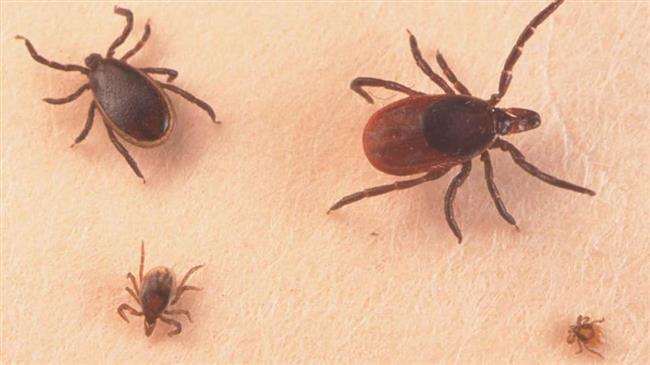Is US weaponizing of ticks behind Lyme disease spread?
US lawmakers in the lower chamber of Congress have voted to demand that the US Defense Department disclose whether it conducted experiments to “weaponize” disease-carrying ticks.
In an amendment passed last week in the US House of Representatives, the Pentagon's Inspector General was called on to look at whether any such experiments were done between the years 1950 and 1975.
The amendment, first reported by the Roll Call newspaper, was added to the fiscal 2020 Defense Authorization bill by House lawmaker Chris Smith, a Republican from New Jersey.
The Defense Authorization bill still needs to pass in the Senate and be signed by President Donald Trump before going into effect.
“We need answers and we need them now,” said Smith, a founding co-chairman of the Congressional Lyme Disease Caucus, which advocates for greater understanding of the disease.
The amendment stated that the Pentagon’s inspector general should “conduct a review of whether the Department of Defense experimented with ticks and other insects regarding use as a biological weapon between the years of 1950 and 1975.”
If the experiments did take place, the inspector general must provide a report explaining “whether any ticks or insects used in such experiments were released outside of any laboratory by accident or experiment design,” the amendment added.
A book released earlier this year, entitled Bitten: The Secret History of Lyme Disease and Biological Weapons, claims that US military researchers implanted diseases into insects to study the potential of biological weapons in the decades after World War ll.
Kris Newby, a Stanford University science writer and the book’s author, also suggests a possible relationship between the experiments and the spread of Lyme disease, an infectious disease spread by ticks causing fever, headaches and fatigue.
Pat Smith, president of the Lyme Disease Association, said uncovering past experiments might help with current work trying to tackle the illness.
“We need to find out: is there anything in this research that was supposedly done that can help us to find information that is germane to patient health and combating the spread of the disease,” she said.
VIDEO | Press TV's news headlines
Iran to start no war, but Armed Forces poised to defend homeland: Govt. spokeswoman
VIDEO | UNMHA exit: A legacy of failure in Hudaydah as violations persist
VIDEO | Winter hardships deepen suffering in occupied West Bank
VIDEO | Homes under occupation: When living rooms become military posts
War could reach your own doorsteps: Iraqi anti-terror group warns Iran’s enemies
IRGC: Iran holds upper hand in determining any war’s endgame
'Fingers on trigger': Iran warns of strong response while signaling openness to 'fair' deal










 This makes it easy to access the Press TV website
This makes it easy to access the Press TV website